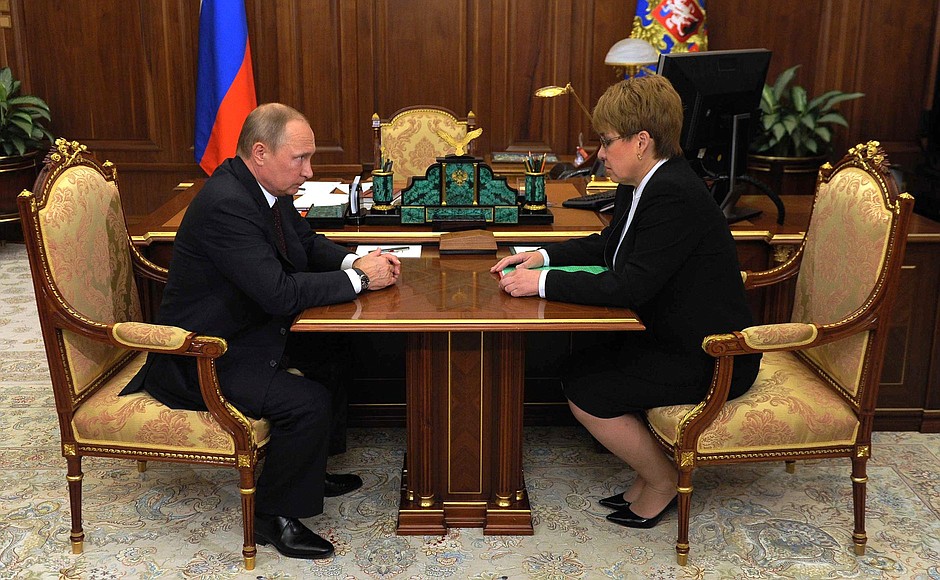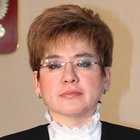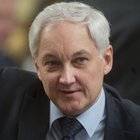
President of Russia Vladimir Putin: Ms Zhdanova, you would like to draft a regional development plan.
Acting Governor of Trans-Baikal Territory Natalia Zhdanova: Yes, we have drafted a development plan, correct. If I may, Mr President, we would like you to support us.
Here are the basics of our concept: for us to be able to overcome the difficult financial and economic situation, which is, unfortunately, what we now have in the region, we have to take serious action, specifically, identify domestic economic growth sources, or even reconfigure the entire system.
We believe it makes sense to rely on the potential benefits of our proximity to our neighbour, and t be more pro-active in building cooperation at the regional and cross-border levels. To this end, we propose drafting a comprehensive plan for developing Trans-Baikal Territory that will promote its socioeconomic stabilisation.
We believe that this plan can be based on trade and investment agreements with our Chinese neighbour in the format of the stated policy goals and the course towards the East. That way, we will be able to properly align three things, namely, Russia’s integration in the Asia-Pacific region, development of the Russian Far East and the Baikal region, and the development of Russian-Chinese regional ties.
If possible, we would like you to take this project under your personal control, as investments are unlikely to start flowing in without state support, or the political will of the leader of the state.
Vladimir Putin: Have you discussed this with the Ministry of Economic Development?
Natalia Zhdanova: Actually, we met with your aide Andrei Belousov and he suggested we consider the Tula experience. This drove our further actions. We went to Tula recently, met with their experts, and discussed this concept with them in general terms.
Vladimir Putin: All right, we will discuss this in more detail now.
What do you think about the socioeconomic situation in your region?
Natalia Zhdanova: Unfortunately, it is not so good, Mr President, but it should be said that it has stabilised to some extent. When I was appointed to this office, people were not even being paid on time.
Vladimir Putin: I am aware of that.
Natalia Zhdanova: We are working on your instructions to stabilise the situation as much as possible. This is a key goal for me. Thank you for always being there for us. We have managed to stabilise the situation. We have paid overdue salaries and holiday compensation. Nevertheless, the situation remains tense.
Again, we do see a way out of this situation. Of course, we need economic and financial support from the federal government; and of course, we need to look for other resources, but we also have to do some serious work to stabilise the economy and create proper conditions for growth.
We have identified the new economic policy parameters, including our four key strength areas, which are timber processing, the mining industry, and of course, agriculture, because it has always been our strong point. Besides, we have adopted a new approach to developing foreign and domestic tourism.
We are building a new model of interaction with businesses and investors. Recently, we created an Industrial Investment Council and held its first meeting to draft a concrete action plan. As part of this council, we plan to create a project office, which will, among other things, attract investors to the Trans-Baikal Territory, and then analyse the implementation of these investment projects.
Today, we are looking at the initial projects, about 20 in all, for the single-industry town of Krasnokamensk, which recently received the status of a priority development territory. If everything works out, we will create an additional 3,000 to 4,000 new jobs and bring in about 30 billion rubles in investment.
A major investment project for the construction of the Bystrinsky mining and processing plant is nearing completion. This is the first truly public-private partnership in our region which was carried out in conjunction with Norilsk Nickel Mining and Metallurgical Company. Over 100 billion roubles have already been invested in this project.
This is a truly large-scale project. Recently, a vice-president of this company came to see us in the city of Chita, and we discussed the completion of the project, and finally agreed that the project would be completed in the fourth quarter of 2017, when the first phase of the plant will become operational.
Vladimir Putin: Good.
<…>

